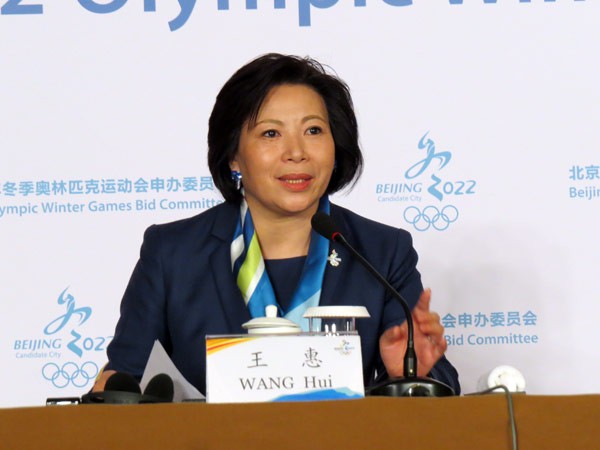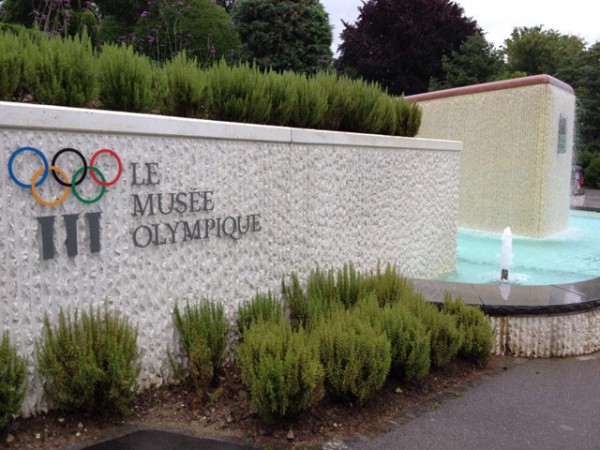Reporting from Kuala Lumpur Convention Centre in Malaysia – On Friday Almaty and Beijing presented their 2022 Olympic Winter Games bids to the International Olympic Committee (IOC) at its 128th Session in Kuala Lumpur. Almaty, considered an underdog to rival Beijing, saw this presentation as a key opportunity to connect with IOC members who have never been to Kazakhstan but are more familiar with China from the 2008 Summer Games.
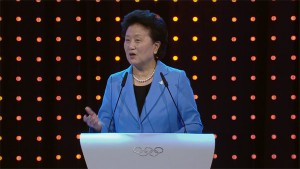
From the outset, both sides came out swinging – taking jabs at each others recognized weaknesses and touting their own strengths. Relying less on emotional stories and themes that were common in previous years, the presentations seemed more fact and information based in an attempt to appease the requirements set by the Agenda 2020 reforms approved by the IOC last year.
Both cities have set up a difficult decision for the IOC. Almaty claims that choosing the Kazakh city, the first time a central Asian city would host a Games, would be historical for the IOC and compared it to the organization’s ability to break barriers and its impact on the cold war and on apartheid, and in a nod to the city’s rival – the awarding of the Summer Games to China in 2008.
“You need to make a historic decision, not for just Kazakhstan but for the Olympic movement itself,” Kazakh Prime Minister Karim Massimov said.
“We are a golden opportunity to help make the Olympic Agenda 2020 come alive.”
Then in a low blow to Beijing he asked “How does one mitigate risk? – with facts, not fabrication,” seemingly a reference to Beijing’s plans for artificial snow and a Games footprint that relies on high speed rail links.
But China’s Vice Premier Liu Yandong promises a Beijing Games would be “a legacy for the world”.
With 1.3 billion people and 92 percent public support, the Games, organizers said, would influence a large nation and influence the world. They promise over 300 million people in China will become involved in winter sport, opening a huge market for all stakeholders including sport federations and sponsors.
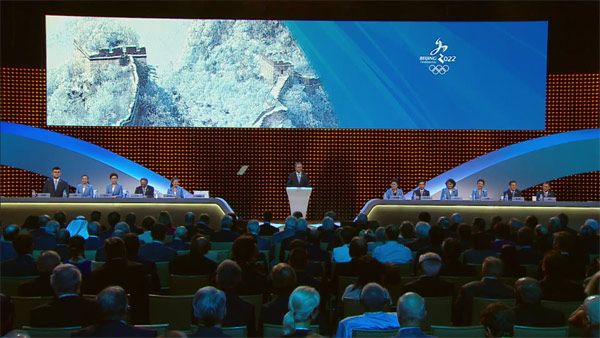
Beijing pointed to it’s large global economy, long-term partnership with the Olympic movement, deep experience, trusted reliability and ability to create an abundance of artificial snow without an environmental impact as key reasons for Beijing to delver the Olympic Games.
Later Beijing Mayor Wang Anshun said “We represent the safest and most reliable choice.”
Beijing could make history by becoming the first city to ever host both the Olympic Winter and Summer Games.
Almaty’s slogan “keeping it real” was central to that city’s presentation theme, and key to its chances of winning. After the presentation, bid co-chair Andrey Kryukov told GamesBids.com “we just said our advantages and we repeat over and over again.“
Almaty seized the opportunity by peppering the IOC with undeniable facts designed to counter rival Beijing’s weaknesses. They spoke about real snow, real legacies, a real winter sport city and a real fit to Agenda 2020.
Almaty Mayor Akhmetzhan Yessimov said “we need these Games, not just to build infrastructure – we need the Games to give our people a better future.”
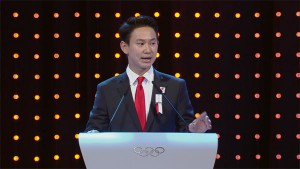
Kryukov called the Prime Minister “a superstar” for his impassioned plea to the IOC at the end of the presentation, but he was pleased with his team’s performance overall.
Just moments after the presentation he excitedly told GamesBids.com “I can’t even deliver how… the intensity inside, the air inside, the spirit – Olympism, it’s so high, you know the level of emotions of the people.”
“100 percent, we did our homework very well and I believe we’ll get a very good result.”
Almaty’s Denis Ten, a bronze medalist figure skater said “I’m happy now it’s done, the presentation was easy to understand and I hope that it was very well received by all the members that were in the room.”
During the presentation Ten explained that getting to to this stage of the bid process, a first for Kazakhstan, was not enough.
“Victory will mean a lot more if we actually win this competition,” he said.
Interestingly though, Chinese IOC Member and Olympic Champion Yang Yang later offered “the journey is the reward,”
Prince Albert of Monaco asked the only questions of the bid cities during the presentation period, he asked Almaty to clarify venues that are already under construction for the 2017 Universiade opposed to new venues needed for the Games, and he asked Beijing to expand upon their sustainability plans.
Kryukov credited the lack of questions to the clarity and completeness of his presentation.
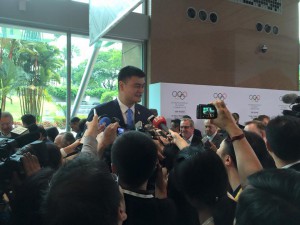
Just as Beijing’s basketball star bid ambassador Yao Ming towers over Almaty’s Denis Ten – the Chinese capital is a giant against the Kazakh city. Beijing threw around dollar figures for revenues, sponsorship and sport market size that Almaty just can’t match. Beijing boasted that China is a global economy and a large trading partner while Almaty said Kazakhstan’s plans are to target being a top 30 economy. Beijing has the infrastructure and influence of one of the biggest cities in the world while Almaty just recently installed its first metro line.
But Almaty, based on climate, culture and venues is simply a better fit for winter sport and Agenda 2020. Will that be enough to win?
“Have faith in us, have faith in Kazakhstan,” Prime Minister Massimov asked.
But faith may not be enough for the IOC who have gone through a series of challenges with recent host cities including Sochi, Rio, PyeongChang and Tokyo. They may be looking for the familiar choice.
After listening to the IOC Evaluation report presentation Friday afternoon, members will vote for their host city for 2022. The announcement of the winning city will be made at a ceremony scheduled for 17:30 local time in Kuala Lumpur.
Watch GamesBids.com for updates.
